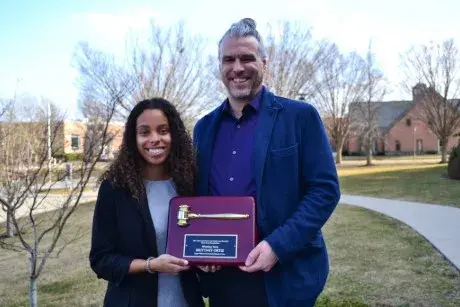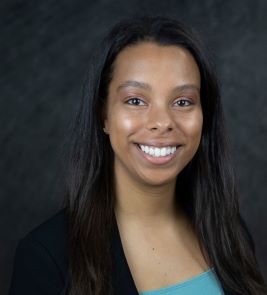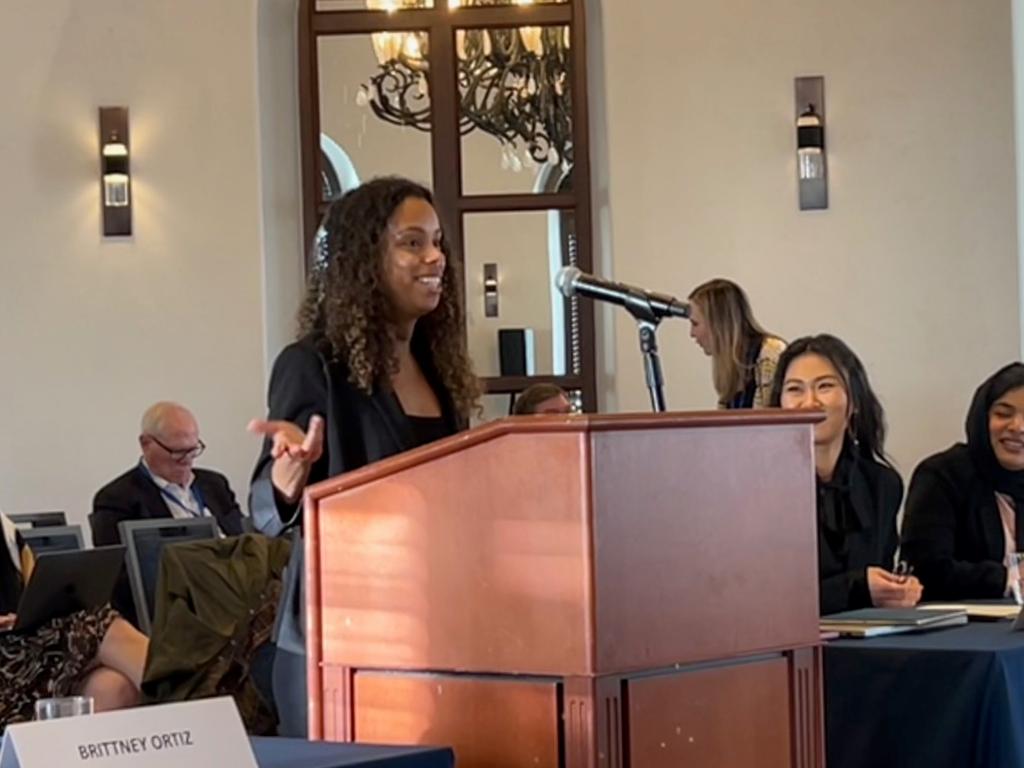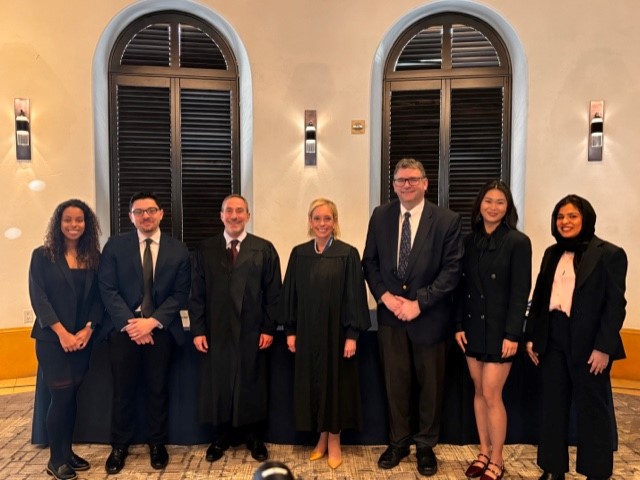Victorious Verdict
RWU Law 3L Brittney Ortiz was paired with Marco Romero of Yale Law School at the final round of the ABA 16th Annual First Amendment and Media Law Diversity Moot Court Competition and the duo emerged as winners. At this round, Brittney and Marco were pitted against a second team from University of Illinois College of Law and Harvard Law.

Roger Williams University School of Law’s Brittney Ortiz 3L, emerged victorious as part of the winning duo at the 16th annual ABA First Amendment and Media Law Diversity Moot Court competition. This Moot Court competition is designed to introduce minority law students to the practice of media law. At the conclusion of the competition, awards are given for superior performance in appellate briefing and oral argument.

At the beginning, the competition consisted of 18 two-person teams which narrowed down to three teams. Ortiz entered the competition at the invitation of fellow RWU Law 3L Aicha Elola, with whom she performed as a team for the first two rounds of the competition. Due to the rules of the competition, the four individual competitors with the highest combination of scores from the brief and the two oral arguments, without regard to team assignment, moved on to compete in the finals in Santa Barbara, CA. Because she was one of those top four, Ortiz was paired with Marco Romero (Yale Law School) for the finals. However, Ortiz holds Elola and her abilities in high esteem. Says Ortiz, “Aicha has top-tier oral advocacy skills. I would not have made it as far as I did in the competition without her.”
In the First Amendment and Media Law Diversity Moot Court, competing teams are assigned a legal topic and a set of facts from which to prepare an appellate brief. At issue for this year’s competition was a particular statute that prohibited the selling or distribution of sexually explicit material to minors. Teams had to determine if the statute was constitutional or if it was impeding on First Amendment rights. Ortiz and her teammate took the position that the statute was constitutional, arguing that the statute’s language was necessarily broad in order to be adaptable to the diverse nature of the different communities—and the values and viewpoints found there. The opposing team argued that the statute was too vague and hard to follow. The panel of judges for the final, which included two federal judges and one state court judge, found in favor of Ortiz and her teammate Romero. 
Ortiz credits RWU Law classes and her experience as a TA in the writing center for her success in the competition. “Everything I learned in the Prisoner’s Rights class taught me how to attack opposing councils’ briefs. And I believe I was able to do so well with writing the brief because of the teachings of Professor Kishbaugh at the Writing Center.”
While technically a victory for her and Romero, Ortiz sees her performance in the Moot Court as exemplary of the adage “It takes a village.” In addition to her original partner Elola and all of her RWU Law professors, she is grateful to the many alumni who helped her in preparing and powering through the rigorous competition. But as a student who went to the writing center “about 70 times” in one semester, she truly believes she would not even have had the confidence to enter the competition without the improvement in her writing that she credits to Professor Justin R. Kishbaugh. 
As RWU Law’s Associate Director of Academic Success and a Professor of Writing, Prof. Kishbaugh can speak with great authority on both the importance of good writing in the legal profession and Ortiz’ commitment to improvement. “Good writing is the gateway to success in these competitions—as it is in both law school and the legal profession. With that standard in mind, I often tell my students that their understanding of and arguments regarding the law mean nothing if not expressed in an organized and understandable prose,” says Kishbaugh. “To help students produce the quality of prose that Moot Court competitions and the legal profession expect of them, I stress that good writing is a skill that can be learned and is dependent more on effort and planning than on intrinsic aptitude or innate ability. Brittney is the record holder for the most appointments in a single semester at our law school’s Writing Center. Her hard work and commitment led to great writing and the well-deserved success and recognition that come with it. We could not be prouder of her tremendous accomplishment!”
